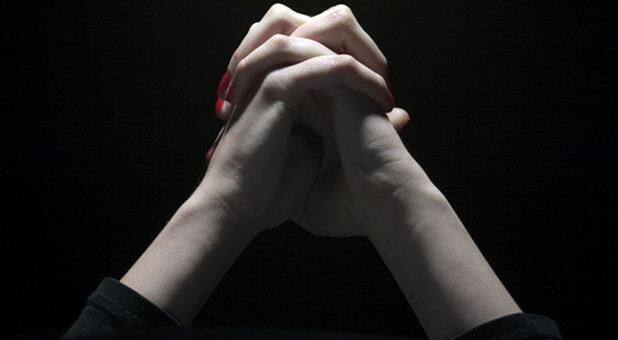If I were to poll every person on the face of the earth asking what fasting means, a large percentage would define it with one word—denial. Some believe that it is the denial of food, while others explain it as a spiritual discipline or abstaining from doing something enjoyable. Almost every religion has a set of days to fast and give up something you desire for a period of time. While I do commend those who are doing the best with what they know, my desire is to give a greater understanding of the power of true, biblical fasting.
How would Esther define it? I can imagine her speaking to her children and grandchildren about the fateful day she courageously walked into the presence of the king after three days of fasting and prayer. Did she recount all the ways her body ached or how she was craving sweets? Was food her focus? I don’t think so. Her words wouldn’t recall the meals she missed, but instead the closeness of her God and His rescuing power.
Relationship is key when fasting. It is essential. Let me explain it this way. Imagine that you are out running some important errands and about to stop for lunch when you get a frantic call that a loved one is in an ambulance on their way to the Emergency Room. Not just some acquaintance, but it’s your child, your spouse or your parent.
Think of how your heart nearly stops, as your only thought is to get to them. Imagine your feelings of compassion, love and dread as you drive. Errands have become irrelevant as you rush without caution to their location. Time has stopped for you. Now imagine those feelings and think about stopping at a drive-thru to grab a sandwich. Heck, they aren’t even at the ER yet; surely you could sneak a quick bite before heading there. Can you even comprehend stopping for food while your family is in danger?
Maybe instead of the hospital, you get the call there are armed intruders at your child’s school. Dangerous men have broken into the school and your child is being held hostage. Imagine the feelings, the emotions and the prayers that might come from your mouth. Feel the overwhelming intensity of the moment. Do you think you could stop for French fries? Would it even be a consideration? No! That is when true fasting and prayer kick in.
Now, imagine you’re going about your busy day and flip on the news. Stories of destruction and death fill the headlines. There might even be a story about a school shooting. But you don’t stop everything to pray and fight for their lives. You don’t race to get to their location and think nothing of your own safety. Why? Relationship. We hear heart-wrenching stories every day, but we don’t jump into action until it hits too close to home. We feel empathy and sadness, but there’s a distinct difference when the story is about your own family as opposed to a complete stranger.
When Esther fasted and prayed because of the impending destruction of her people, what thoughts went through her mind when she first heard the news? Do you think of Esther as a real person with fears and emotions? Most times, as we read about the people in the Bible we think they are super-human. They never made mistakes or got afraid. But the truth is, this young girl practically had no family and even though she was in the palace, she must have felt very powerless and alone. Even in her fear, I don’t believe for a second that the fasting was hard for her to do.
There might’ve been hesitation, but the hesitation that Esther felt was due to going before the king to implore his mercy for her people. I don’t think she was selfishly hesitant because she was planning an elaborate meal with her handmaidens later that night. She knew that death awaited her people. Men, women and children were going to be slaughtered at the word of a man named Haman, who wanted to annihilate the Jews. Survival was Esther’s focus, not dinner that night. The words of Mordecai rang in her ears in Esther 4:14: “And who knows if you may have attained royal position for such a time as this?”
If you knew that everyone in your family or everyone in your race was going to be slaughtered at a designated time, would you reconsider having lunch? Would a cookie stand in the way of your desperation to live?
Food seems trivial when put into the perspective of life and death. If you were in Esther’s shoes, I know that food would not have such a hold on you. You might begin calling those friends who knew how to pray and seek the heart of God. My bet is that your prayer life would increase exponentially; Esther’s did.
In Esther 4:16, she says: “Go, gather all the Jews who can be found in Susa, then fast for me. Stop eating and drinking for three days, night or day. I and my young women will fast likewise. Only then would I dare go to the king since it is not allowed by law, and if I perish, I perish.”
One of the most dangerous accounts of fasting and prayer was about to begin.
Are you planning a fast starting in 2015? Is your church joining together to fast? I hope you join me and read my book, Fasting Is Not About Food, for even more insights and learn how to fast and pray with power! You can get my book on amazon.com.












